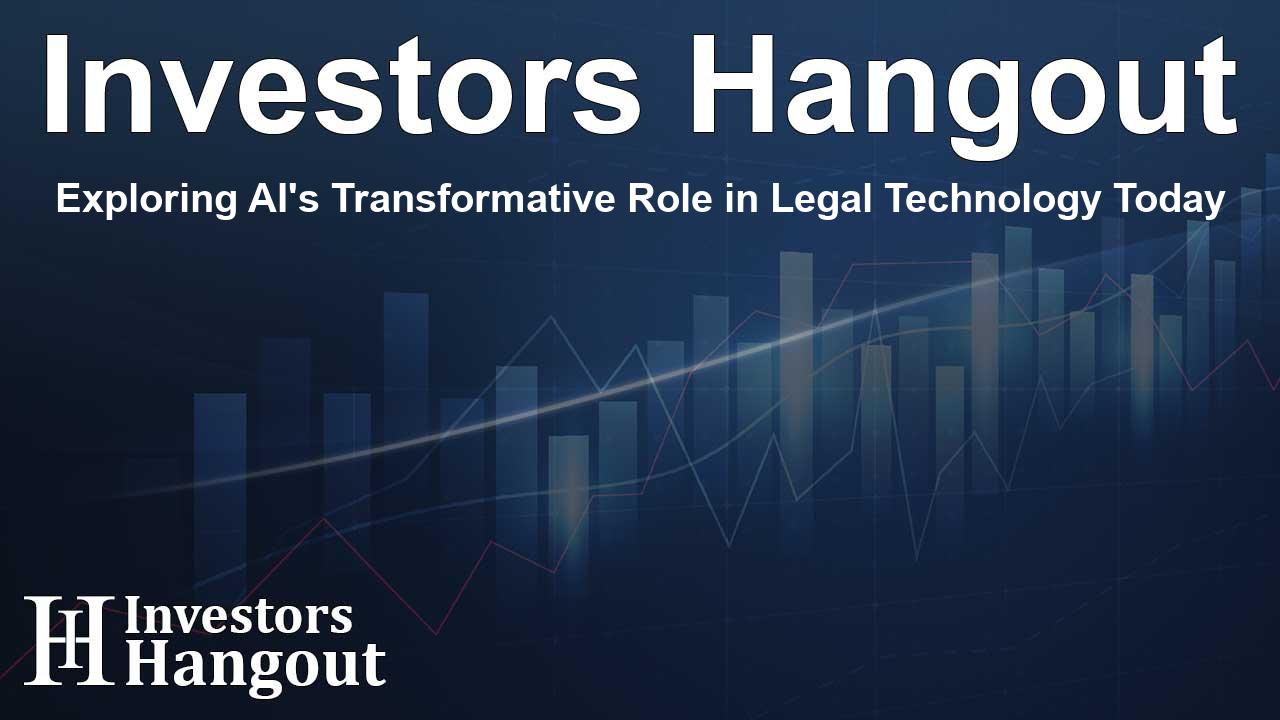Exploring AI's Transformative Role in Legal Technology Today

Innovative AI Symposium Highlighting Legal Tech Evolution
Bloomberg Law recently held its inaugural "Law, Language, and AI Symposium." This influential event gathered a diverse group of leaders from academia, legal practice, and technology. The primary goal was to explore how artificial intelligence is transforming the landscape of legal practices and research. With a clear focus on enhancing the practice of law, Bloomberg Law strives to leverage modern technologies to bring tangible benefits to legal professionals.
Bridging Theory with Practical Applications in Legal AI
The symposium served as a critical platform for discussions aimed at merging the theoretical frameworks of legal scholarship with the practical impacts of AI technologies. Dialogue sessions offered insights into how AI can support and augment the capabilities of legal professionals, enhancing efficiency and effectiveness.
Showcasing Cutting-Edge Research in Legal AI
Distinguished speakers presented research that spanned several critical areas within legal technology. Topics addressed included natural language processing applied to legal analytics, the marriage of legal theory with AI systems, and ethical considerations in the deployment of AI technologies in legal practices. These presentations emphasized the ongoing evolution of AI in delivering legal solutions and fostering ethical frameworks.
Highlights of Notable Presentations
Among the sessions, engaging talks showcased unique approaches using AI for transactional lawyering and document automation. Other notable topics discussed were:
- Bringing Predictive Analytics to Transactional Lawyering - Insights provided by Rebecca B. Pasternak from Mayer Brown.
- Multi-Agent LLM Platform for Legal Document Preparation - Presented by Tong Liang from Dynosaur Technology.
- Access to Justice Initiatives through AI - Discussed by Bruce B. Cahan and Yen Kha from Stanford University Center for Legal Informatics.
- Numerical Reasoning in Legal Contexts - Analysis shared by Mark Klaisoongnoen and Claire Barale from The University of Edinburgh.
- Automated Reasoning for Legal Applications - Covered by Ruzica Piskac and Scott Shapiro from Yale University.
- Neurosymbolic Argumentation Models in Legal Reasoning - Explored by a team from Carnegie Mellon University.
- AI Bridging Natural Language with Smart Contracts - Presented by academics from the University of Arizona.
- Contextual Legal Intelligence through AI - Discussed by researchers from the University of Maryland Baltimore County.
- Evaluating AI Knowledge in Legal Settings - Presented by Larissa Mori and Mario Ventresca from Purdue University.
Throughout the symposium, prominent themes emerged surrounding practical applications of AI in the legal sector. Experts expressed the importance of addressing challenges that AI systems face in processing complex legal data while achieving a balance between innovation and ethical practices.
Keynote Insights on AI Customization in Law
Megan Ma, executive director at Stanford's Legal Innovation through Frontier Technology Lab, presented a compelling keynote. She focused on revolutionary research involving multi-agent personas tailored for the legal field. This innovative approach can potentially reshape legal AI tools, allowing for personalized outputs that reflect the specific styles of legal professionals. By adapting AI systems to mirror the expertise of individual lawyers, the potential to create tailored legal documents becomes a reality.
Bobby Puglia, chief product officer at Bloomberg Industry Group, remarked on the significance of the symposium, stating, "We were impressed by the quality of the work presented and are grateful to connect with individuals committed to using AI for significant advancements in legal efficiencies and productivity."
Looking Ahead: AI's Role in Legal Transformation
The discussions held at this symposium not only highlighted the progress made in legal technology through AI but also underscored the collaborative spirit of legal professionals, technologists, and academics in advancing the field. This kind of convergence is necessary to keep pace with the rapidly changing demands of the legal profession.
Frequently Asked Questions
What is the focus of Bloomberg Law's AI Symposium?
The symposium centers on the intersection of artificial intelligence and legal technology, exploring their implications for legal practices.
Who were the key speakers at the symposium?
Notable speakers included Megan Ma and various researchers from prestigious institutions who presented innovative research on legal AI applications.
What topics were covered during the event?
Topics ranged from predictive analytics in transactional law to ethical AI practices, showcasing both theoretical and applied advancements.
How does AI affect legal document preparation?
AI technologies enhance the efficiency and accuracy of legal document preparation, potentially transforming traditional practices.
What future developments were discussed at the symposium?
Future developments include the continued integration of AI in legal processes, focusing on customization and ethical considerations in AI deployments.
About The Author
Contact Henry Turner privately here. Or send an email with ATTN: Henry Turner as the subject to contact@investorshangout.com.
About Investors Hangout
Investors Hangout is a leading online stock forum for financial discussion and learning, offering a wide range of free tools and resources. It draws in traders of all levels, who exchange market knowledge, investigate trading tactics, and keep an eye on industry developments in real time. Featuring financial articles, stock message boards, quotes, charts, company profiles, and live news updates. Through cooperative learning and a wealth of informational resources, it helps users from novices creating their first portfolios to experts honing their techniques. Join Investors Hangout today: https://investorshangout.com/
The content of this article is based on factual, publicly available information and does not represent legal, financial, or investment advice. Investors Hangout does not offer financial advice, and the author is not a licensed financial advisor. Consult a qualified advisor before making any financial or investment decisions based on this article. This article should not be considered advice to purchase, sell, or hold any securities or other investments. If any of the material provided here is inaccurate, please contact us for corrections.
